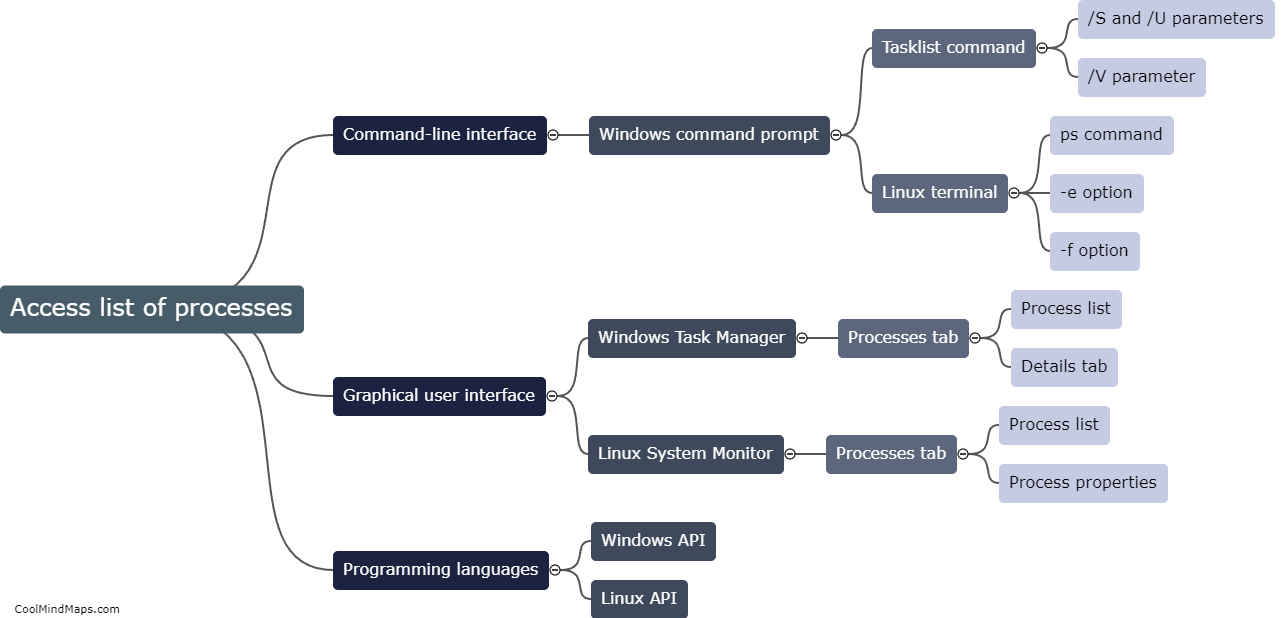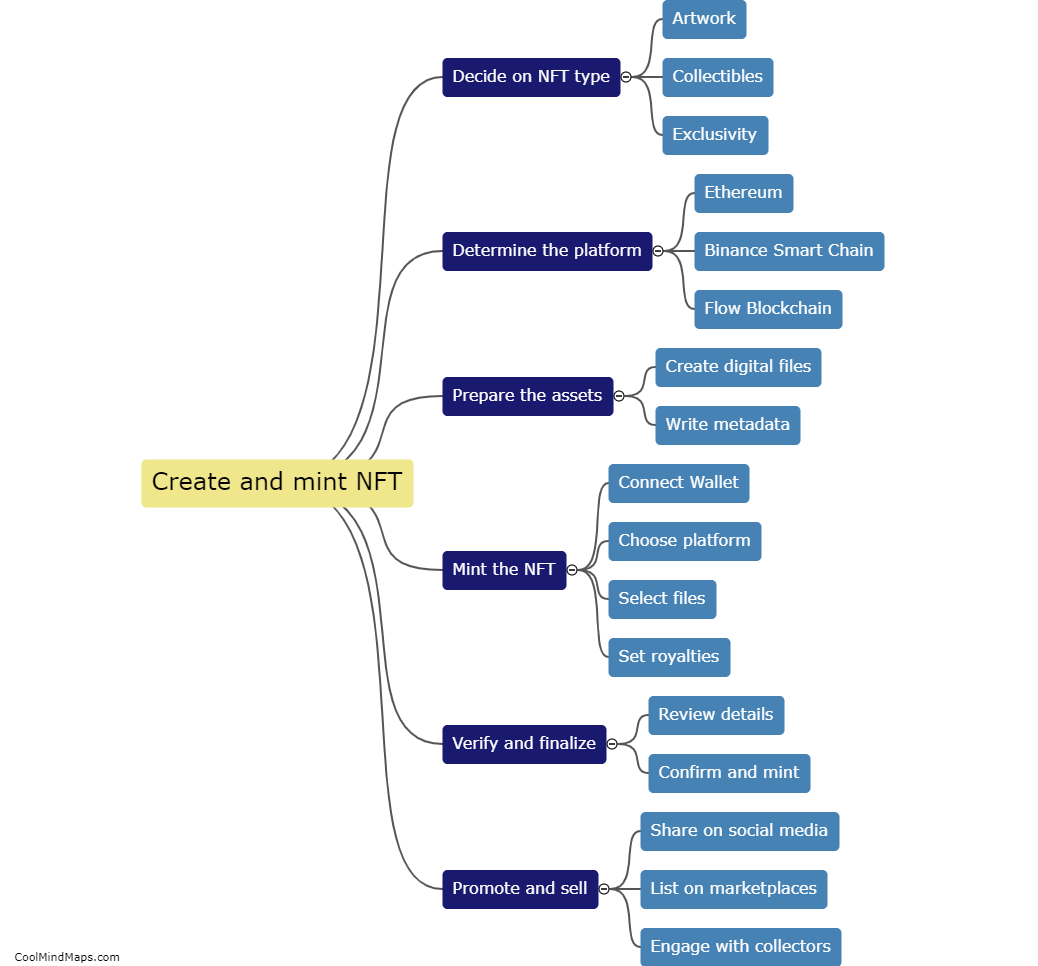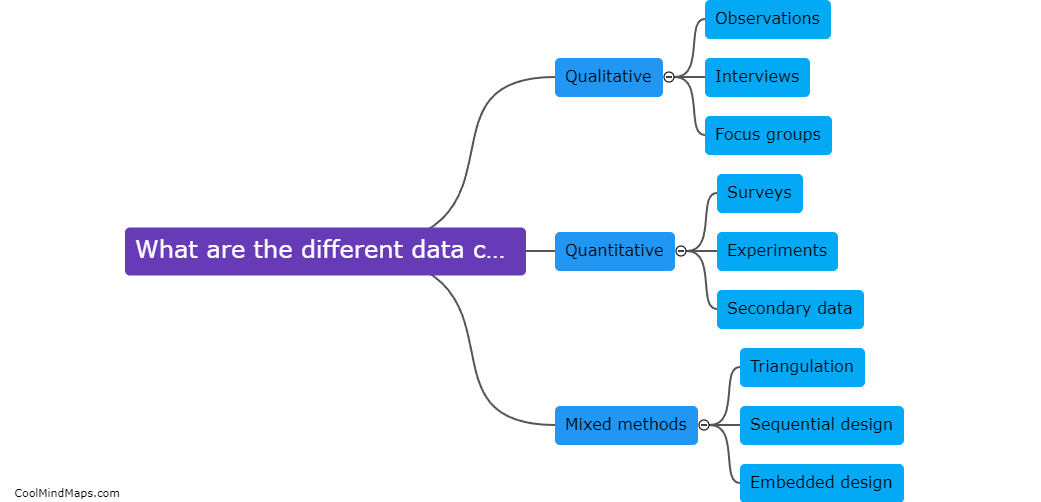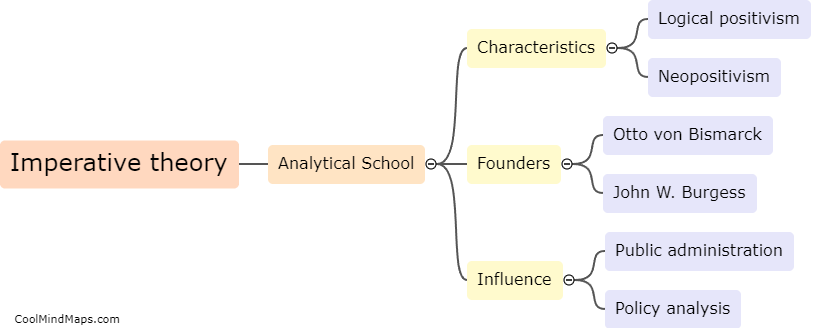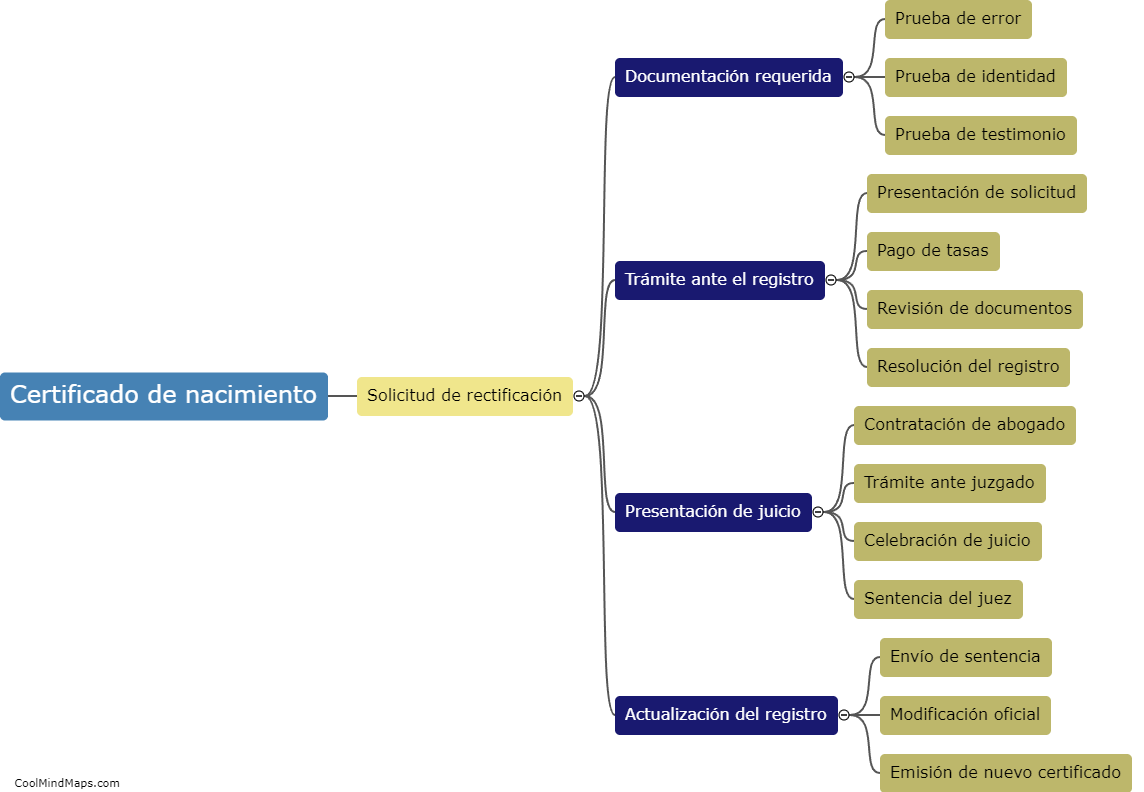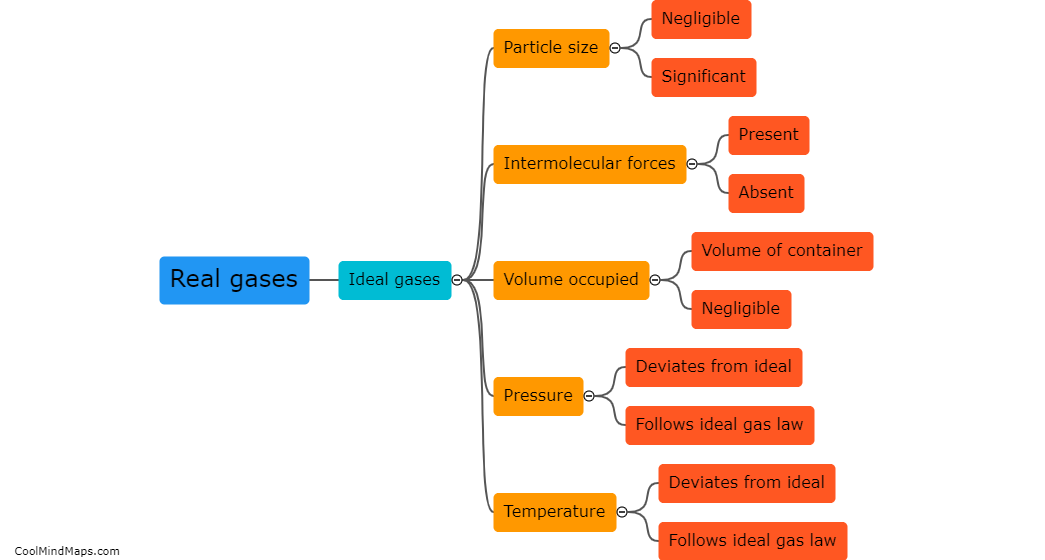How is metadata handled in different file formats?
Metadata is the information that provides details about a file, such as its title, author, creation date, and keywords. The handling of metadata varies across different file formats. In some formats, such as JPEG or MP3, metadata is embedded directly into the file itself. This means that the metadata travels with the file and is accessible by any software or device that supports that particular format. Other file formats, like DOCX or PDF, store metadata in a separate container within the file. This container can be accessed and modified independently of the actual content. Additionally, there are formats, like TXT or CSV, that do not have built-in metadata support. In such cases, users typically rely on external methods, such as file naming conventions or separate database systems, to manage metadata associated with these files. Overall, the handling of metadata in different file formats depends on the format's capabilities and design choices.
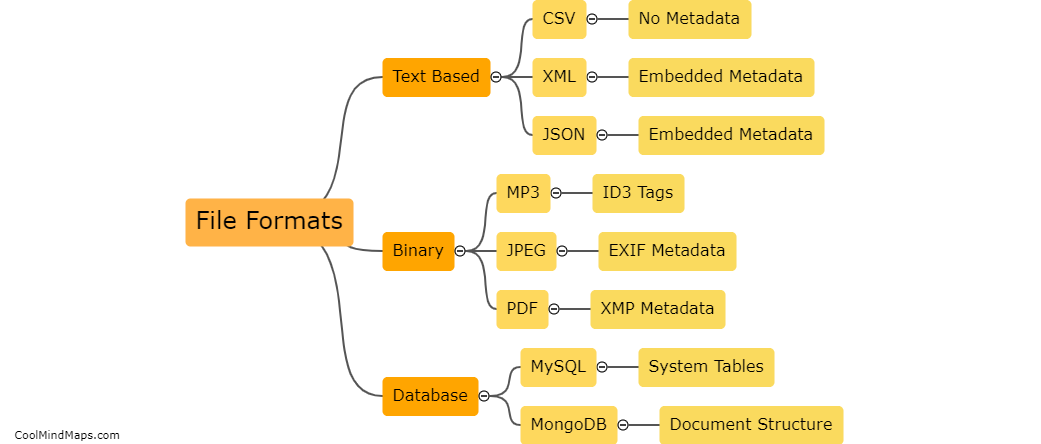
This mind map was published on 12 September 2023 and has been viewed 112 times.
